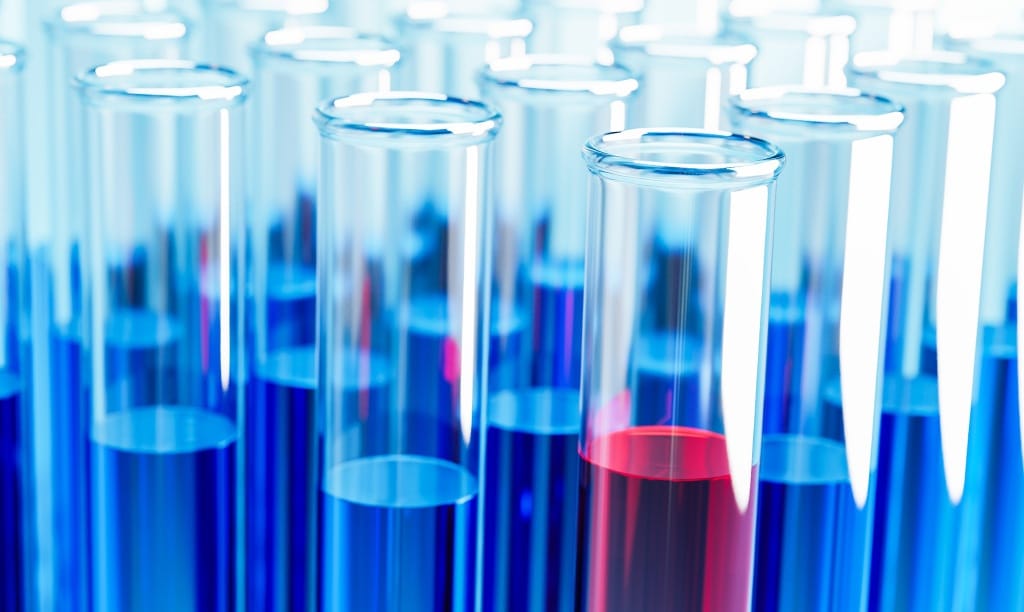6 Key Soil Markers For Testing Device Cleanliness
Looking to determine if your reusable device’s cleaning protocol is robust enough? Use these 6 soil markers to test the cleanliness of your devices. Information on medical device soil markers, bacterial spores, blood soils, total organic carbon, proteins, lipids, and more are covered in this article. See THIS article on the top 4 cleaning validation challenges for more information on soil selection for reusable device cleaning validations.
#1: Protein Soil Markers For Device Testing
Protein is the most commonly used soil marker for evaluating cleaning efficacy. There are many methods for assessing residual protein both visually or quantitatively.
Below is a list of 10 testing methods for determining residual protein content:
1) Protein staining with ninhydrin stain
2) Biuret reaction
3) Micro Bicinchoninic acid test kit, Bio-Rad protein assay, protein residues assay
4) Naphthol Blue Black, Brilliant Blue R, and Bradford Reagent
5) Modified OPA method
6) Pro-tect® swab stick
7) Folin phenol method
8) Measuring the radioactivity of radiolabeled protein tracers
9) Fluorescence quenching of erythrosin B
10) 4’,6-diamidino-2-phenylindole dihydrochloride (DPI)
Note: when performing protein assessments, viable count determinations are useful. However, viability counts are time-consuming and do not determine the amount of dead residual organisms on a device. Thus, viable count assessments should not be used as the sole marker for cleaning.
#2: Lipid and Oil Markers
Lipids and oils can accumulate on devices during use due to interaction with tissue fats, skin, or lubricant agents. Nile Red dye can be used to visualize residual lipids and oils on reusable medical devices. Cottonseed oil, mineral oil, glycerin, and silicone oil are not easily stained. However, these substances can be measured in microtiter plates at 215 nm and 220 nm in a plate reader with UV wavelength.
#3: Carbohydrate Soil Markers For device Testing
Carbohydrates are a significant constituent of bacterial biofilms and cell structures. The artificial test soil of Alfa and Jackson contains carbohydrates and has been used to monitor the cleaning of medical devices using the phenol-sulfuric acid method.
#4: Endotoxins And Microbes
Endotoxins are parts of the cell wall of Gram-negative bacteria. Reusable medical devices are exposed to Gram-negative bacteria if in contact with mucosal surfaces or tap water used during reprocessing. Endotoxins can cause chills and fever. They are most problematic if left on reusable medical devices that are considered “critical” and enter sterile body cavities. Endotoxin levels can be assessed from commercially available BET (Bacterial Endotoxin Tests). Other microbes, especially bacterial spores, are tested and used to determine the cleanliness of reusable medical devices. Bacterial spores are resistant to many cleaning and sterilization protocols and thus are a wonderful metric to prove the efficacy of cleaning validation protocols experiencing a “worst case scenario.”

#5: Hemoglobin and Blood Soils
Hemoglobin is used to assess residual blood cells. Hemoglobin strip tests and standard quantitative hemoglobin assays can be used to assess residual hemoglobin on reusable devices. Many medical device cleaning protocols use coagulated and whole blood soils in order to test how well cleaning validations can remove blood from reusable devices prior to sterilization. Note that a blood soil can be blood alone or a mix of blood with other elements like lipids, proteins, and carbohydrates.
#6: Total Organic Carbon
Total Organic Carbon (TOC) analysis measures the amount of carbon bound on organic compounds. TOC analysis is most commonly used to measure water quality (e.g., presence of detergents, biofilm) in pharmaceutical manufacturing equipment. However, TOC can also be used to measure extraneous materials (such as the presence of cleaning agents and protein materials) on cleaned reusable devices.
One method of TOC analysis measures the total carbon dioxide produced following persulfate oxidation of organic compounds. In these assays, the amount of carbon dioxide formed is measured either directly by detectors or by a change in color of a pH indicator.
Ethide Labs is a contract testing organization that specializes in Microbiology Testing. Ethide Labs also offers Sterilization Validations, Bacterial Endotoxin Testing, Environmental Monitoring, Package Integrity Testing, Bioburden Testing, EO Residual Testing & Cytotoxicity Testing services for medical device companies and allied industries. Ethide is an ISO 13485 certified facility.
Share this in your social networks


